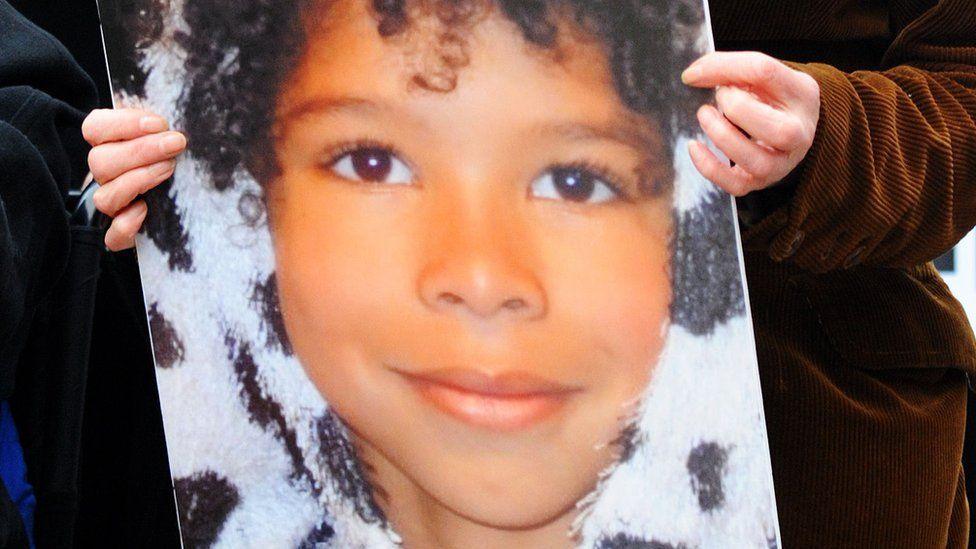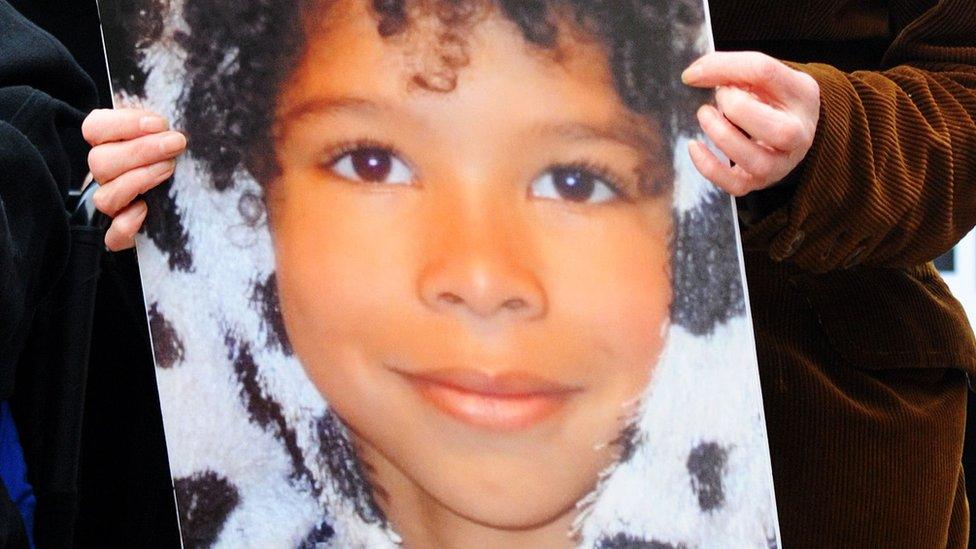Zane's Law on landfill becomes Green Party policy

Zane Gbangbola died during severe Thames floods in 2014
- Published
Implementing a new law to ensure greater transparency over contaminated land has been adopted as Green Party policy.
The law is named after Zane Gbangbola, a seven-year-old boy whose parents say was killed by gas from landfill when the River Thames flooded in Surrey in 2014.
Zane's Law calls for measures including that councils keep public registers of contaminated sites.
A motion moved by Green Party peer, Baroness Natalie Bennett, was backed at the party conference on Saturday.
“Current UK regulations on contaminated land pose a threat to human life and welfare," she said.

Zane's parents, Nicole Lawler and Kye Gbangbola, have campaigned for greater transparency
Zane's parents, Kye Gbangbola and Nicole Lawler, say their son was killed by toxic hydrogen cyanide gas from a former waste dump. Mr Gbangbola was left paralysed by the same incident.
The couple have said when they bought their Chertsey house, no environmental searches identified the field behind the property was former landfill, and this only came to light after Zane had died.
An inquest concluded Zane was killed by carbon monoxide from a petrol pump used to clear floodwater from his home in Thameside, but Mr Gbangbola and Ms Lawler say the pump was not used.
They accessed public health documents that stated firefighters found hydrogen cyanide in their home, but no carbon monoxide.
Since then, the family have campaigned for legislation to provide greater transparency over contaminated land, named after their son.
Several councils have already voted to support Zane's Law including Lewes District Council, Brighton & Hove City Council and Adur District Council.
Follow BBC Surrey on Facebook, external, and on X, external. Send your story ideas to southeasttoday@bbc.co.uk, external or WhatsApp us on 08081 002250.
- Published31 March 2024

- Published24 April 2024

- Published20 February 2024

- Published8 February 2024
